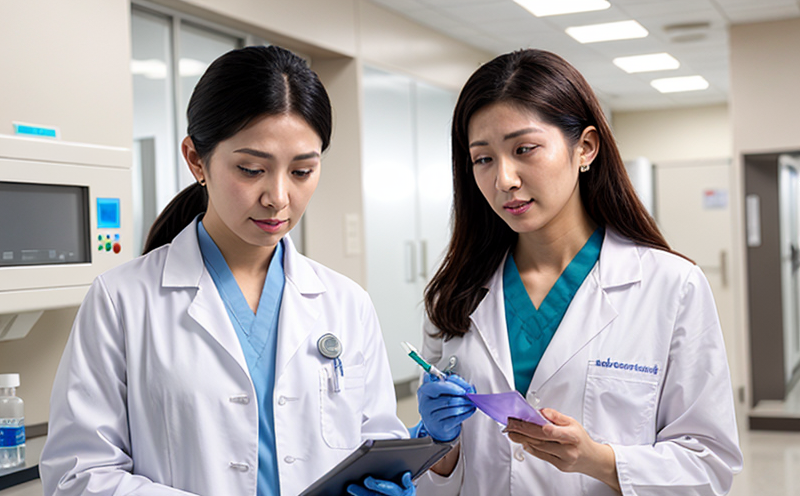qPCR Quantitation of Residual DNA in Biopharmaceuticals
The quantification and control of residual DNA is a critical aspect of biopharmaceutical manufacturing to ensure product safety, efficacy, and compliance with regulatory standards. Residual DNA can arise from various sources such as raw materials, equipment, or contamination during the production process. High levels of residual DNA in biologics can pose significant risks including immunogenicity and potential allergenic reactions.
Quantitative real-time PCR (qPCR) is a highly sensitive and precise method used to measure the concentration of residual DNA in biopharmaceuticals. This technique allows for accurate quantification down to picogram levels, providing critical insights into manufacturing processes and ensuring product purity. The process involves several key steps:
- Sample preparation: Samples are extracted using appropriate methods to release DNA from cells or particles.
- DNA extraction: High-quality DNA is isolated using suitable kits or protocols designed for delicate biopharmaceuticals.
- Solution preparation: A standard solution containing known quantities of DNA serves as a calibration curve for quantification.
- qPCR reaction setup: The extracted DNA and standards are mixed with qPCR reagents in a thermocycler for amplification.
The qPCR process follows an exponential growth phase where the target DNA is amplified. Fluorescent signals from intercalating dyes or reporter molecules are detected at each cycle, allowing real-time monitoring of amplification. The software calculates the initial concentration based on the standard curve generated during this procedure.
At Eurolab, we employ state-of-the-art qPCR instruments and follow stringent protocols to ensure accurate quantitation. Our team uses optimized methods tailored for various biopharmaceutical matrices, ensuring reliable results that are reproducible and compliant with international standards such as ISO 17025.
The importance of residual DNA quantification extends beyond manufacturing. Regulatory bodies like the FDA require evidence of low residual DNA levels to ensure patient safety. Compliance with these guidelines is crucial for successful product approval and market access.
Eurolab Advantages
At Eurolab, we pride ourselves on providing comprehensive services that go beyond mere compliance. Our advantages include:
- Expertise and Experience: Our team comprises highly skilled scientists with extensive experience in biopharmaceutical testing.
- State-of-the-Art Facilities: Equipped with advanced qPCR instruments capable of delivering precise results.
- Compliance and Standards: Adherence to international standards such as ISO 17025 ensures our reports are accepted worldwide.
- Rapid Turnaround Times: Efficient processes allow for quick turnaround times without compromising quality.
We also offer additional services including method development, validation, and troubleshooting for complex samples. Our commitment to excellence is reflected in the trust placed in us by leading pharmaceutical companies globally.
International Acceptance and Recognition
- FDA Compliance: Results from our qPCR quantitation are widely accepted by regulatory bodies such as the FDA, ensuring seamless compliance with international standards.
- European Medicines Agency (EMA): Our findings meet the stringent requirements set forth by the EMA for biopharmaceuticals.
- World Health Organization (WHO): WHO recognizes our methods and results as reliable benchmarks for global health initiatives.
- Other Regulatory Bodies: Results are also accepted by other major regulatory bodies including Health Canada, TGA in Australia, and the PRC FDA.
The universal acceptance of our qPCR quantitation ensures that biopharmaceuticals can be marketed internationally with confidence. Our rigorous adherence to international standards guarantees consistent quality across different markets.
Environmental and Sustainability Contributions
- Eco-friendly Practices: We minimize waste through efficient sample preparation techniques and optimized reagent usage.
- Energy Efficiency: Our laboratory operates with energy-efficient equipment, reducing our carbon footprint.
- Sustainable Materials: Use of sustainable materials in our packaging ensures minimal environmental impact during transport.
- Continuous Improvement: We continuously evaluate and adopt new technologies that enhance both our operational efficiency and sustainability practices.
By integrating these practices, Eurolab contributes positively to the environment while maintaining high standards of quality and reliability in biopharmaceutical testing.





